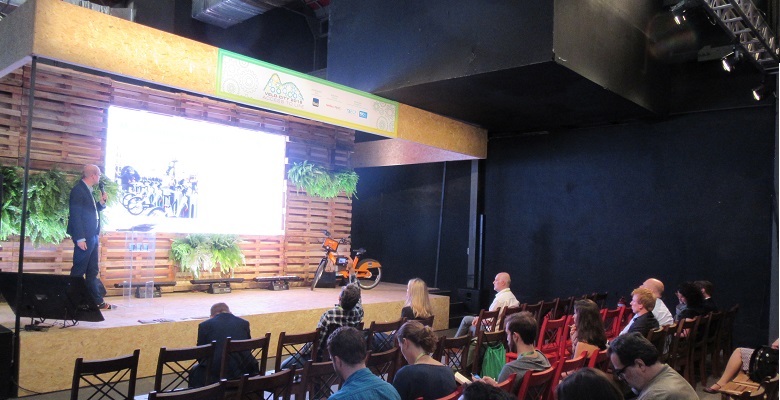
Velo-city day 4: Cycling governance
How can political support be translated into policy? This was the key question that was addressed in this governance workshop that focused on national cycling strategies, national frameworks of Sustainable Urban Mobility Plans (SUMPs) and the ‘complete streets’ approach in Brazil.
Fabian Küster, ECF Senior Policy Officer, talked about the importance of the national level to create a cycling nation. With few exceptions, all European countries that ranked high in the ECF Cycling Barometer from 2013 and 2015, have developed and implemented national cycling strategies in the past. Whereas countries at the bottom of the ranking did not have such a policy in place. A key ingredient for a successful national cycling strategies was allocating adequate resources to implement measures, both in terms of human resources, for example by appointing a national cycling officer, and in terms of funding. Norway invests annually 20 Euro per capita in central government funding in cycle projects, the highest number found in any of the European countries. The United Nations Environment Programme recommends 20% of transport investments to be allocated to active mobility.
Robert Pressl from Austrian FGM Amor took a wider view by looking at how Member States support national SUMP frameworks. France, Flanders (Belgium) and Catalonia (Spain) were identified as forerunners. Key ingredients of successful SUMPs are introducing 30km/h as default speed limit, the reallocation of public space as well as the (partial) use of revenues from parking management to finance sustainable mobility projects, he said. The two Austrian cities Graz and Vienna as well as Belgian Ghent were identified as particularly successful examples.
Paula Santos from WRI Brazil reported about efforts to introduce the complete streets philosophy into Brazilian town planning. In Brazil, the growth of the cities coincided with the advent of the car age, making it particularly challenging to reverse trends. However, through education programmes and the active involvement of cities, financing agencies, universities, civil society organisations as well as the citizen, the concept is getting from the ground. “But it is still a drop in the ocean”, Paula conceded.
Contact the author
Recent news!
Upcoming events
Contact Us
Avenue des Arts, 7-8
Postal address: Rue de la Charité, 22
1210 Brussels, Belgium









